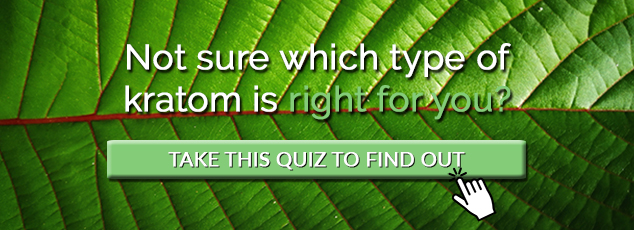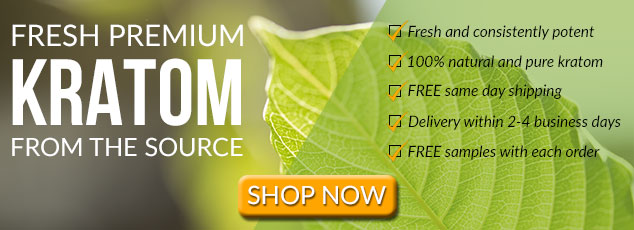One of the ways to take kratom is tea. You can easily make kratom tea at home with or without sweeteners and some lemon juice. You even spice things up with different kratom tea recipes if you get bored with regular kratom tea.
Despite the many benefits of kratom, one thing that many people complain about is kratom taste. If you try out different kratom vendors, you may discover that kratom from some vendors actually tastes rather neutral. Yet, in other instances, kratom can be rather bitter and difficult to get down.
Therefore, many add sweeteners to make kratom tea more palatable. Let’s take a closer look at some of the best kratom sweeteners to add to your daily cup of kratom tea. We’ll also go through some of the worst ones that you should better avoid.
Best Kratom Sweeteners
1. No Sweetener
It may sound counterintuitive, but the best sweetener is no sweetener at all. Even if kratom sweeteners are natural and considered safe, they are still added sugar. There are no health benefits associated with having added sugar in your diet, especially because sugar is added to most foods that we consume.
Foods that may seem completely unrelated to sugar are frequently full of sugar, especially if they are processed. The following store-bought products contain sugar:
- sauces,
- condiments such as ketchup,
- dressings,
- diet foods,
- canned vegetables,
- breakfast cereal,
- bread.
Products such as milk, fruits, dried fruits, and fruit juices also have natural sugars present into them. So, the chances are that you are already consuming more sugar than it is recommended.
Excess sugar can lead to many health problems, such as excess weight and diabetes.
So, if your kratom tea tastes really bad, you may want to try out other kratom vendors. There are vendors out there who sell more palatable kratom as well as those who sell very potent kratom. The more potent the powder is, the less of it you will need, which will result in less bitterness.
Sugar is addictive, and quitting it altogether may be very hard at first. However, it gets easier over time.
2. Natural Fruit
If you cannot handle kratom taste, look into the next best kratom sweeteners – natural fruit. While you will likely not put fruit into kratom tea, making kratom smoothies may be a healthy alternative. You will not be able to mask kratom taste, but also up your intake of vitamins from the fruit.
You can also mix kratom with your favorite fruit juice. However, make sure to use freshly-squeezed juice rather than store-bought ones. The latter tend to have additional additives to make them sweeter and prolong their shelf life.
3. Stevia
Stevia is an all natural, low-calorie sweetener that is extracted from the leaves of a South American plant stevia. It is approximately 100 times sweeter than table sugar, but has almost no calories. Purified commercially available stevia can be even up to 300 times sweeter than table sugar.
Due to its low caloric value, stevia is a great sugar substitute for people who have diabetes.
Nonetheless, stevia tends to be more expensive, and it also can have an unpleasant aftertaste and cause nausea. Due to this reason, it’s not uncommon for manufacturers to add other sugars, making stevia less beneficial. So, go for organic stevia that has not been supplemented with other sugars if possible.
4. Raw Honey
While honey is still a type of sugar and is high in calories, raw honey contains many beneficial nutrients such as vitamins, minerals, and amino acids. It also has polyphenols, bioactive plant compounds that act as antioxidants.
As a result, pure raw honey has anti-inflammatory properties and many health benefits. Due to the enzymes that honey bees produce, raw honey also has anti-bacterial properties.
Raw honey also contains pollen. Bee pollen contains around 250 beneficial compounds and has many impressive nutritional and health benefits. Germany even recognizes it as natural medicine.
Yet, most store-bought honey is filtered to the extent that it contains no pollen. Moreover, most commercial honey are watered down and how other additives such as artificial sugars. So, store-bought is not only a lot less beneficial; it may actually be harmful.
Don’t get fooled by labeling such as “organic,” an unofficial study that samples around 60 various brands of honey concluded that about 75% of them, including those labeled as “organic,” had no pollen.
That’s because organic normally means that honey came from an organic farm. However, it may have still gone through processing that has removed pollen and altered the composition of the honey. Raw, on the other hand, means that honey has not been pasteurized or otherwise processed.
So, we advise you to look into local honey producers to get your hands on some pure honey and enjoy all its health benefits. Keep in mind that raw honey can thicken and crystallize. It is still good honey that is safe to eat; so, don’t worry.
5. Maple Syrup
Pure maple syrup also is a high-calorie product that contains a high amount of sugar, yet it contains some vitamins, minerals, and antioxidants.
Yet, just like with honey, it’s important to get real pure maple syrup. Otherwise, you may be getting maple-flavored syrup that contains high-fructose corn syrup, refined sugar, or other artificial ingredients that are not good for you.

Worst Kratom Sweeteners
1. Artificial Sweeteners
Artificial sweeteners are sugar substitutes that taste sweet but do not have as many calories and do not raise blood sugar levels. Some of the most common are aspartame, acesulfame potassium, also known as acesulfame K, sucralose, saccharin, xylitol, and others.
Unless you are diabetic and artificial sugars have been advised to you by a doctor, it’s best to stay away from them.
Dietitians state that artificial sweeteners can make crave sugar even more. Moreover, they can affect the gut flora, leading to increased weight.
While you will frequently find sources claiming that there is no solid proof that artificial sweeteners are unsafe, there are many side effects and risks associated with them. These include dizziness, nausea, inflammation, headaches, migraines, mood swings, as well as gastrointestinal problems such as bloating, gas and worsened IBS symptoms.
Some studies also show a connection between aspartame and cancer.
2. Refined Sugar
Refined sugar is the regular white table sugar. The body breaks it down very quickly, resulting in spikes in insulin. A diet high in refined sugar can lead to many health problems, such as type 2 diabetes, insulin resistance, obesity, hyperactivity, and other health problems.
Moreover, most of us already consume plenty of sugar through other foods. So, adding more refined sugar to our tea is simply an unnecessary way of upping our refined sugar intake.
Keep in mind that brown sugar isn’t necessarily healthier. While due to molasses that while sugar does not have, brown sugar contains some minerals. Yet their amount is so small, that it doesn’t actually contribute to any health benefits.
Moreover, some brown sugar available on the market isn’t actually brown sugar but refined white sugar with molasses added to it that makes it look brown.
3. Agave Nectar
Many refer to agave nectar as a healthy substitute to regular sugar because it has a low glycemic index and does not affect blood sugar. Nonetheless, it is extremely high in fructose. In fact, it has more fructose than regular table sugar. Therefore, its long-term use may lead to high bad or LDL cholesterol, fatty liver, increased belly fat, and other health issues.
The Bottom Line
Keep in mind that the best kratom sweeteners mentioned in this article are still a form of sugar. So, even if they are healthier and better alternatives, it’s still best to keep their intake at a minimum. Try not to take more than one to two teaspoons a day.



Leave a Reply